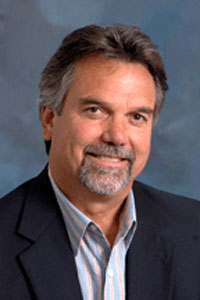Natural compounds draw increased scientific scrutiny
June 25, 2009

Mark Davis
Davis, a professor in the Department of Exercise Science, says natural compounds have recently sparked the interest of government agencies – particularly the military – and savvy consumers interested in a healthy diet.
It’s an exciting development, he says, because it represents a move into “an advanced area of nutrition strategies involving plant-derived compounds that have been thought for thousands of years to have energy-producing and health benefits.”
During his 26-year tenure at USC, Davis has become an international authority in the study of nutritional countermeasures for mental and physical fatigue and the effects of nutrition and exercise on immune function and disease resistance.
Quercetin and curcumin are flavanoids, a class of more than 4,000 compounds found in fruits, vegetables and certain beverages that have beneficial health effects.
The skins of red apples, red onions, berries and grapes are sources of quercetin. In both animal and human studies, Davis has found the compound to boost energy and endurance and reduce inflammation and encourage recovery following intense activity.
Similar results have been found in studies involving curcumin, a chemical found in the curry spice turmeric and is responsible for its yellow color. It has been used for centuries to decrease inflammation and treat arthritis.
Within the past five years, Davis says the Department of Defense has provided some “pretty hefty grants” because military commanders are interested in knowing whether fortified rations will give U.S. troops an edge in battle.
The Army has already developed an early version of what it calls a Nutritionally Optimized First Strike Ration®, intended for troops to consume during the first 72 hours of combat.
Quercetin and curcumin are key ingredients that are being tested as possible additives to the combat ration which the Department of Defense describes as having a “balance of food enhancers such as carbohydrates, caffeine, vitamins, antioxidants, and amino acids. These enhancers will allow for faster recovery of war fighters from physical and mental fatigue, ultimately extending their physical and cognitive endurance on the battlefield.”
The enhanced food compounds are being blended into a menu that includes easy-to-carry components such as shelf-stable sandwiches, tortilla wraps, First Strike™ Bars and dessert bars.
Davis also is in the early states of a new study that will investigate the effects of quercetin, curcumin and perhaps other compounds on injuries and infections among basic combat trainees at Fort Jackson.
The long-term, multi-faceted study is led by Dr. Saundra Glover, head of the Institute for Partnerships to Eliminate Health Disparities.
Davis also has the support of generous grants from Defense Advanced Research Projects Agency to investigate the potential benefits of quercetin on influenza infection and the National Cancer Institute which wants him to study the compound’s impact on colorectal cancer.
Davis says the increase of research into flavanoids also will benefit health-conscious consumers who may be confused by a barrage of claims in the media.
“People are becoming more educated and skeptical about claims that some athlete plays great basketball because he’s taking certain substances. These people are interested in the science behind nutritional supplements and they want to see well-done, systematic scientific studies,” he said.
The National Institutes of Health has paid attention, creating an Office of Dietary Supplements that provides information and advice to the public on the $13 billion dietary supplement industry.
Davis releases new findings in Journal of Sports Nutrition and Exercise Metabolism.



_01.jpg)
_02.jpg)